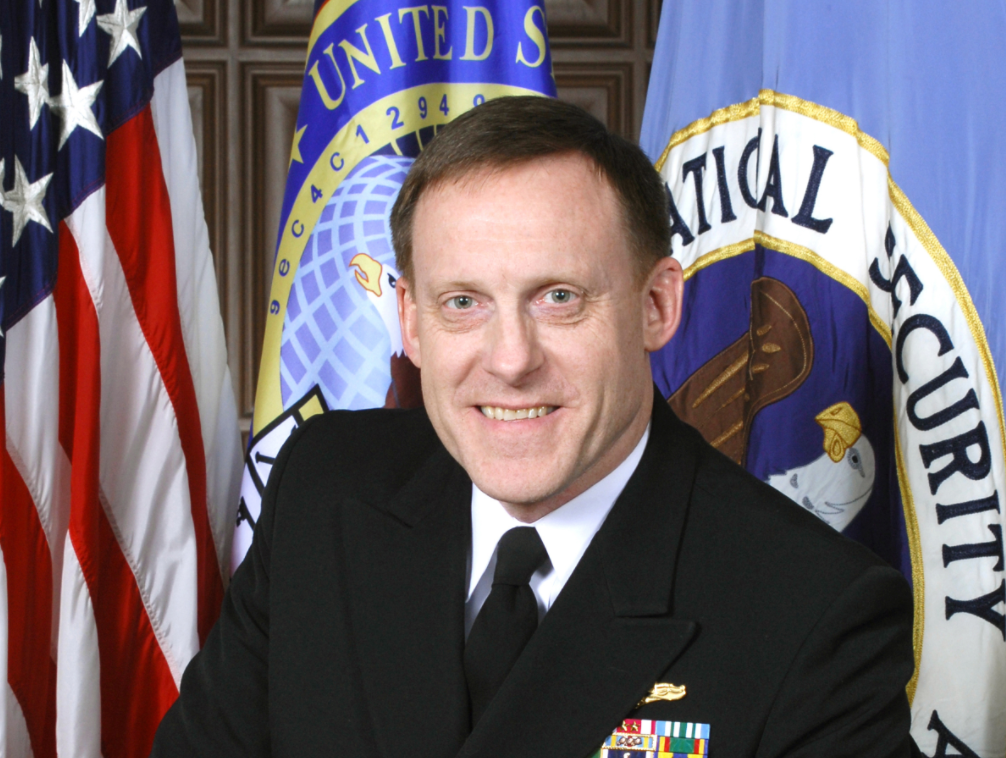“Intelligence professionals have a saying: There are no friendly intelligence services,” the WSJ describes former House Intelligence Chair Mike Rogers saying, on the record. While there’s no way of telling — particularly not with WSJ’s described “more than two dozen current and former U.S. intelligence and administration officials” sources behind it’s blockbuster story on US spying on Bibi Netanyahu and other Israelis, Rogers is a likely candidate for some of the other statements attributed to “former US officials,” a moniker that can include agency officials, consultants, and members of Congress.
Which is awfully funny, given that two of the people squealing most loudly in response to the story are Rogers’ immediate predecessor, Crazy Pete Hoekstra, who called it a “Maybe unprecedented abuse of power,” and successor, Devin Nunes, who has already started an investigation into the allegations in the story.
It is the height of hypocrisy for these men, who have been privy to and by their silence have assented to this and, in Crazy Pete’s case, far worse patently illegal spying, to wail about a story that shows the Administration abiding by NSA minimization procedures they’ve both celebrated as more than adequate to protect US person privacy. If NSA’s minimization procedures are inadequate to protect US persons, the first thing Nunes should do is repeal FISA Amendments Act, which can expose far more people than the tailored, presumably EO 12333 tap placed on Bibi, not to mention OmniCISA, which can be targeted at Americans and will have even fewer protections for US persons.
The immediate attempt by a bunch of surveillance maximalists to turn compliant spying into a big scandal raises the question of why this story is coming out now, not incidentally just after Iran turned over its uranium stockpile over to Russia and in the process achieved another big step of the Iran deal.
I’m not in any way meaning to slight the WSJ reporting. Indeed, the story seems to show a breadth of sources that reflect a broad range of interests, and as such is not — as would otherwise be possible — Mike Rogers attempting to leak something to the WSJ so his fellow Republicans can make a stink about things.
This story includes “current and former U.S. officials” providing a list of leaders they claim were detasked from spying in 2014 — François Hollande, Angela Merkel, and other NATO leaders — and those they claim were not — along with Bibi Netanyahu, Turkey’s leader Recep Tayyip Erdogan. Of course, like James Clapper’s claim that Edward Snowden’s leaks forced the NSA to shut down its full take spying on Afghanistan, this “confirmation” may instead have been an effort to cover for collection that has since been restarted, especially given the story’s even more revealing explanation that, “Instead of removing the [surveillance] implants, Mr. Obama decided to shut off the NSA’s monitoring of phone numbers and email addresses of certain allied leaders—a move that could be reversed by the president or his successor.” Obama did not eliminate the infrastructure that allows him to request surveillance (in actually, monitoring of surveillance going on in any case) to be turned on like a switch, and this WSJ article just conveyed that detail to Hollande and Merkel.
So the story could serve as disinformation to cover up restarted surveillance, and it could serve as a cue for the bogus, unbelievably hypocritical political scandal that Crazy Pete and Nunes appear to want to make it.
But I’m just as interested in the dick-waving in the story.
Some of the most interesting details in the story — once you get beyond the wailing of people like Crazy Pete and Devin Nunes probably swept up in intercepts described in the story — pertain to what NSA did and did not learn about Bibi’s efforts, largely executed through Israeli Ambassador to the US Ron Dermer, to thwart the Iran deal. A key detail here is that while (it is implied) NSA destroyed most or all of the intercepts involving members of Congress directly with Bibi, they passed on (with US person identities masked) the reports back through foreign ministry channels of discussions with or on behalf of Bibi.
The NSA has leeway to collect and disseminate intercepted communications involving U.S. lawmakers if, for example, foreign ambassadors send messages to their foreign ministries that recount their private meetings or phone calls with members of Congress, current and former officials said.
“Either way, we got the same information,” a former official said, citing detailed reports prepared by the Israelis after exchanges with lawmakers.
In other words, NSA might not pass on the intercepts of calls members of Congress had with Bibi directly, but they would pass on the reports that Dermer or Bibi’s aides would summarize of such discussions. And according to “a former official” (curiously not described as high ranking) by passing on the reports of such conversations, “we got the same information.”
Usually, but not always, according to the story.
It describes that “Obama administration officials” (which may but probably doesn’t include intelligence officials) didn’t learn about John Boehner’s invitation to Bibi to address Congress ahead of time, even though Boehner extended that invite through Dermer.
On Jan. 8, John Boehner, then the Republican House Speaker, and incoming Republican Senate Majority Leader Mitch McConnell agreed on a plan. They would invite Mr. Netanyahu to deliver a speech to a joint session of Congress. A day later, Mr. Boehner called Ron Dermer, the Israeli ambassador, to get Mr. Netanyahu’s agreement.
Despite NSA surveillance, Obama administration officials said they were caught off guard when Mr. Boehner announced the invitation on Jan. 21.
According to the description of the article, this call should have been fair game to be shared with the White House as a report through the foreign ministry, but either wasn’t reported through normal channels on the Israeli side or NSA didn’t pass it along.
But, according to the story, the White House did get many of the details about Dermer’s attempt to scotch the Iran deal.
The NSA reports allowed administration officials to peer inside Israeli efforts to turn Congress against the deal. Mr. Dermer was described as coaching unnamed U.S. organizations—which officials could tell from the context were Jewish-American groups—on lines of argument to use with lawmakers, and Israeli officials were reported pressing lawmakers to oppose the deal.
[snip]
A U.S. intelligence official familiar with the intercepts said Israel’s pitch to undecided lawmakers often included such questions as: “How can we get your vote? What’s it going to take?”
Let me interject and note that, if the people squealing about these intercepts weren’t such raging hypocrites, I might be very concerned about this.
Consider the Jane Harman case. In 2009 it got reported that NSA and FBI collected conversations Jane Harman had (probably on an individual FISA wiretap) with AIPAC suspects in which Harman allegedly agreed to help squelch the criminal investigation into the organization in exchange for help getting the Chairmanship of the House Intelligence Committee. The position, not incidentally, that all the people (save Mike Rogers, who seems to have had no problem with them) squealing about these intercepts have held or currently hold. At least according to 2009 reports on this, lawyers in then Attorney General Alberto Gonzales’ DOJ considered criminal charges against Harman, but chose not to pursue them, because Gonzales — who had criminally, personally authorized the Stellar Wind program in March 2004 — needed Harman’s support in advance of NYT breaking the Stellar Wind story at the end of 2005. That suggests (if these stories are to be believed) Gonzales used Harman’s purported criminal exposure to get protection against his own.
Now, Crazy Pete was out of power well before these particular intercepts were described (though may have his own reason to be concerned about what such intercepts revealed), but in the same period, Devin Nunes got himself appointed HPSCI Chair, just like AIPAC was allegedly brokering with Harman. He got himself appointed HPSCI Chair by the guy, Boehner, who invited Bibi to address Congress.
And what were AIPAC and other groups — who allegedly were offering congressional leadership posts back in 2005 — offering lawmakers last year to oppose the Iran deal? “What’s it going to take?” the intercepts apparently recorded.
What were they offering?
This is the reason permitting lawmakers’ communications to be incidentally collected is such a risk — because it collects the sausage-making behind legislative stances — but also defensible — because it might disclose untoward quid pro quo by foreign governments of members of Congress. It is a real concern that the Executive is collecting details of Congress’ doings. More protections, both for Members of Congress and for regular schlubs, are needed. But wiretapping the incidentally collected communications with foreign leaders is not only solidly within the parameters of Congressionally-approved NSA spying, but may sometimes be important to protect the US.
That’s the kind of the thing the White House may have seen outlines of in the reports it got on Darmer’s attempts — though the report indicates that Democratic lawmakers and Israelis who supported the Iranian deal (probably including former Mossad head Efraim Halevy, who was criticizing Bibi and Darmer’s efforts in real time) were sharing details of Darmer’s efforts directly with the White House.
In the final months of the campaign, NSA intercepts yielded few surprises. Officials said the information reaffirmed what they heard directly from lawmakers and Israeli officials opposed to Mr. Netanyahu’s campaign—that the prime minister was focused on building opposition among Democratic lawmakers.
Which brings me to the dick-waving part. Here’s the last line of the WSJ story.
The NSA intercepts, however, revealed one surprise. Mr. Netanyahu and some of his allies voiced confidence they could win enough votes.
Some of this story is likely to be disinformation for our allies, much of this story seems to be warning (both friendly and unfriendly) to those likely implicated by the intercepts. But this just seems like dick-waving, the spook-and-politician equivalent of spiking the football and doing a lewd dance in the end zone. The Israelis surely knew all the monitoring was going on (even if members of Congress may have been stupid about them), especially given the way John Kerry, as laid out in the story, raised concerns about Israeli spying during negotiations. But this line, the final reveal in the story, mocks the Israelis and their American interlocutors for assuming they had enough to offer — “What’s it going to take to get your vote?”– to kill the Iran deal.
This may, in part, be an effort to get those implicated in the intercepts to exercise some more caution. But it also seems to be a victory dance, just as Russia ships away Iran’s uranium stockpiles.





